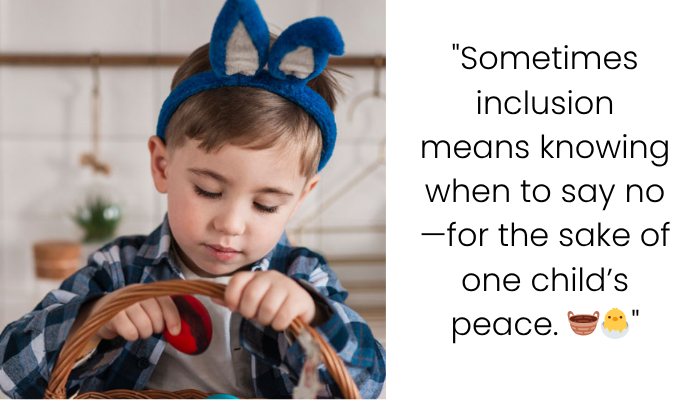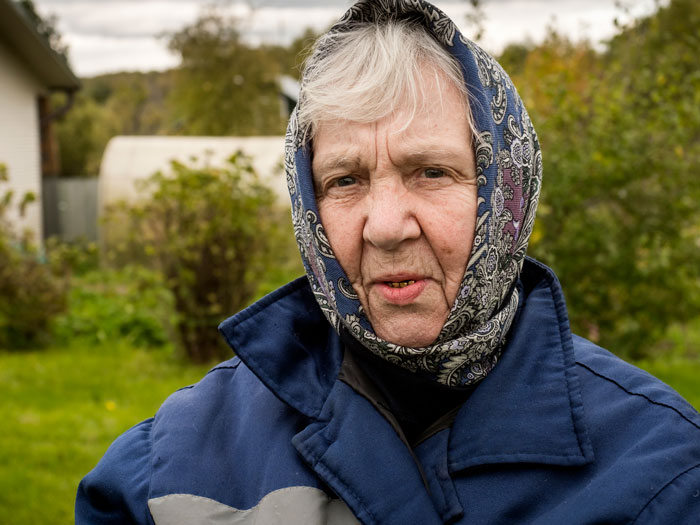AITA for Not Letting My Neighbor’s Granddaughter Join My Autistic Son’s Easter Egg Hunt?

In an effort to create a joyful and stress-free Easter experience for their 3-year-old autistic son, a mother organized a private egg hunt tailored to his sensory needs. Past experiences with public events had left the child overwhelmed and excluded, prompting the family to design an environment where he could engage at his own pace. However, when a neighbor’s young granddaughter entered the yard and began collecting eggs, tensions arose. The mother’s request for privacy was met with resistance and misunderstanding, leading to a confrontation that left her questioning her actions.
Advertisement – Continue Reading Below
Children with autism also deserve to enjoy themselves and be a part of fun, playful activities

The poster mentioned that her 3-year-old son has level two autism and that he finds it hard to participate in group settings, so he usually sits on the side and watches






















The Importance of Sensory-Friendly Events for Autistic Children
Understanding Sensory Sensitivities
Advertisement – Continue Reading Below
Children with autism often experience heightened sensitivities to sensory stimuli, making traditional events like Easter egg hunts challenging. Overcrowded spaces, loud noises, and unstructured activities can lead to overstimulation, causing distress and withdrawal. Tailoring events to accommodate these sensitivities is crucial for inclusive participation.
Creating Inclusive Celebrations
To ensure that children with autism can enjoy holiday traditions, families and communities can implement several strategies:
Advertisement – Continue Reading Below

- Personalized Egg Hunts: Assigning specific colors or patterns to each child’s eggs can reduce competition and provide structure.
- Sensory-Friendly Environments: Choosing quiet locations, minimizing visual clutter, and avoiding loud noises can help prevent sensory overload.
- Visual Supports: Using schedules or social stories can prepare children for what to expect, reducing anxiety.
- Alternative Treats: Including non-food items like stickers or small toys in eggs accommodates dietary restrictions and sensory preferences.
Respecting Boundaries and Promoting Empathy
It’s essential for neighbors and community members to respect the boundaries set by families of children with special needs. Understanding and empathy can go a long way in creating inclusive environments where all children feel safe and valued. Open communication and education about autism can foster a more supportive community.
Folks sided with the mom and were shocked at the entitlement of the older woman







Conclusion: Advocating for Your Child’s Needs
Advertisement – Continue Reading Below
The mother’s decision to prioritize her son’s comfort and well-being by organizing a private Easter egg hunt was both thoughtful and necessary. While the neighbor’s granddaughter’s enthusiasm was innocent, the situation highlights the importance of respecting the unique needs of children with autism. Advocating for your child’s needs, even in the face of misunderstanding, is not only appropriate but commendable.






